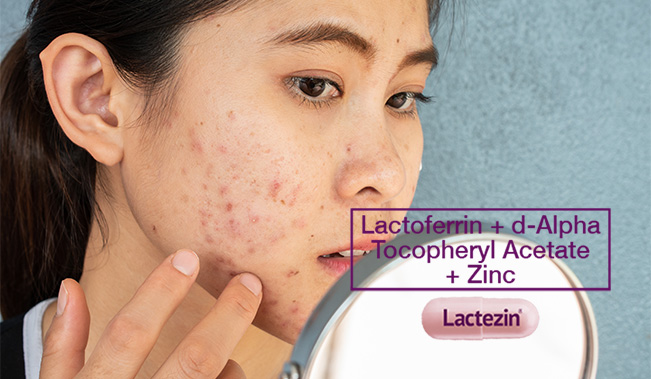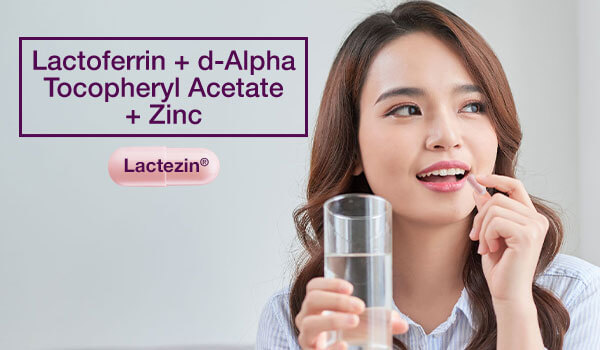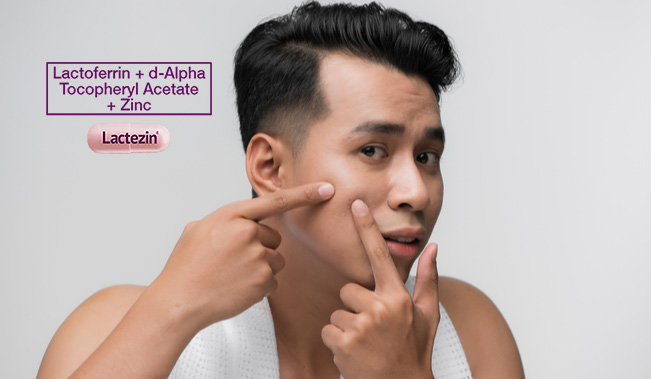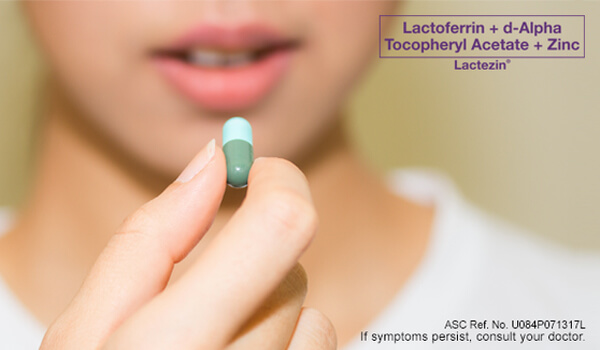Beating Acne-Causing Free Radicals with Antioxidants

Acne is among the most prevalent skin problems, affecting people of all ages. While many factors can contribute to acne breakouts, one of the most common is an overabundance of free radicals in the body. Free radicals are highly unstable substances that cause cell damage and inflammation. Such inflammation and cell damage cause breakouts and other acne scars.
This raises the question: can vitamin E alone fight free radicals that cause acne? Vitamin E helps neutralize free radicals, although it works better when combined with other vitamins and minerals.
To significantly boost the fight against acne-causing free radicals, supplement your vitamin E with other vitamins and minerals.
Here's everything you need to know about how vitamins and other antioxidants work against these challenges and why they're beneficial to skin care.
Lactoferrin and Vitamin E Safeguard the Cells
Sunlight is a causative factor in the formation of free radicals, which can damage cells. Without Vitamin E and Lactoferrin, free radicals produced by the sun's UV rays can cause cell degradation in our skin, resulting in lines and wrinkles, discoloration, stretch marks, and acne.
Lactoferrin assists in increasing resistance to infection and restoration of damaged skin cells. Vitamin E, on the other hand, a well-known free-radical scavenger, assists in skin protection by delaying free radical damage to skin cells. Both substances react with harmful airborne species and absorb energy from ultraviolet (UV) light. They act as important barriers, preventing free radical damage to the skin caused by the sun’s rays.
Zinc Against Inflammation
Free radicals aggravate skin inflammation. Fortunately zinc helps fight inflammation. It prevents growth of inflammatory acne caused by radicals such as pustules, cysts and nodules.
- Pustules are elevated pus-filled spots on the skin's surface.
- Cysts are large, fluid-filled bumps that form beneath the skin's surface.
- Nodules are large, hard bumps found deep within your skin.
Zinc has properties that aid the body in reducing puffiness in acne patients. According to studies, patients who received zinc treatment had fewer active flare-ups than those who did not. Zinc also promotes tissue regeneration which can help to reduce acne skin damage.
Vitamin E Versus Stress Pimples
Psychological stress causes an imbalance between the production of free radicals and their elimination by the body's defense mechanisms. Long-term exposure to psychological stressors may increase the risk of pimples and skin diseases. Oxidative damage from stress ages the skin and causes inflammation and collagen breakdown.
Stress breakouts are distinguished by the appearance of multiple new pimples simultaneously, whereas hormone-related flare-ups appear one at a time. Stressful times or events, regardless of whether you are prone to acne, can cause skin problems.
Can you repair skin damage caused by free radicals with vitamins?
Minimizing or eliminating exposure to stressors can help your body reverse the effects of stress by taking supplements. The body consumes a lot of Vitamin E during stress and anxiety. Intake of supplements assists in restoring balance and helps boost feelings of relaxation.
Moisture Versus Dry Acne
Free radicals target your body's lipids. Lipids are the skin's protective membranes that aid in moisture retention. As the skin's lipids deplete, the skin becomes more prone to dryness. When this happens, the body secretes more sebum, resulting in acne. Although skincare products could help, avoiding dry acne requires addressing the underlying cause of dry skin.
Although Vitamin E will not magically cure your acne, using Vitamin E products can help prevent moisture loss. Take Vitamin E along with other vitamins and antioxidants for the best results. When there is enough moisture or lipid in the body, the body does not secrete as many oils, so breakouts are avoided. Aside from that, Vitamin E may help your skin fight environmental stressors or free radicals from within. As a result, the lipids do not shrink, and the skin remains soft and supple.
Saying Goodbye to Acne Through Supplements
For acne sufferers, supplements may provide some relief. Vitamins and antioxidants help reduce inflammation and fight free radicals, which lead to skin breakouts. In addition, antioxidants help keep skin moisturized and can even help reduce the appearance of scars. If you're struggling with acne caused by free radicals, consider adding vitamin supplements to your daily routine.
There is no need to choose multiple supplements! Choose Lactoferrin + d-Alpha Tocopheryl Acetate + Zinc (Lactezin) if you want a trusted acne oral supplement.
Lactoferrin + d-Alpha Tocopheryl Acetate + Zinc (Lactezin) together with proper diet and exercise, may help address and prevent pimples when taken two times daily for at least two weeks.
Lactezin has three main ingredients working together to help address acne and restore skin health:
- Lactoferrin: This iron-binding protein has antibacterial capabilities that help fight pimple-causing bacteria. Lactoferrin assists in reducing sebum production and inflammation by way of its anti-inflammatory properties. Lastly, lactoferrin may aid in improving immune function and repairing damaged skin cells.
- Vitamin E: This antioxidant assists in retaining skin’s natural moisture while preventing dryness. It helps maintain good skin cell health and combat damage caused by free radicals and UV rays.
- Zinc: This ingredient regulates oil production to improve skin’s overall appearance and aids in healing your skin. Plus, it has immune-boosting and anti-inflammatory properties.
Don’t let dry skin and acne stand in your way. Let Lactoferrin + d-Alpha Tocopheryl Acetate + Zinc (Lactezin) help you improve your skin from within.
Lactoferrin + d-Alpha Tocopheryl Acetate + Zinc (Lactezin) is available in drugstores nationwide, and online on the ULSSI webstore, Shopee and Lazada.
If symptoms persist, consult your doctor.
SOURCES:
https://vitagene.com/blog/vitamin-e-for-acne/
https://www.ncbi.nlm.nih.gov/pmc/articles/PMC4756869/
https://www.healthline.com/health/beauty-skin-care/vitamin-e-acne
https://www.sciencedirect.com/science/article/abs/pii/S0006291X87802711
https://my.clevelandclinic.org/health/diseases/22765-inflammatory-acne
https://health.clevelandclinic.org/vitamin-e-for-skin-health/


